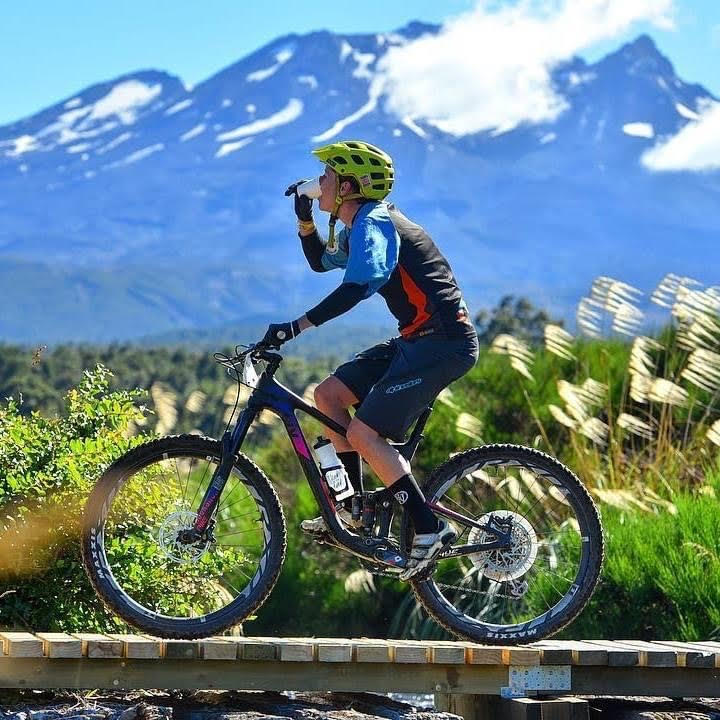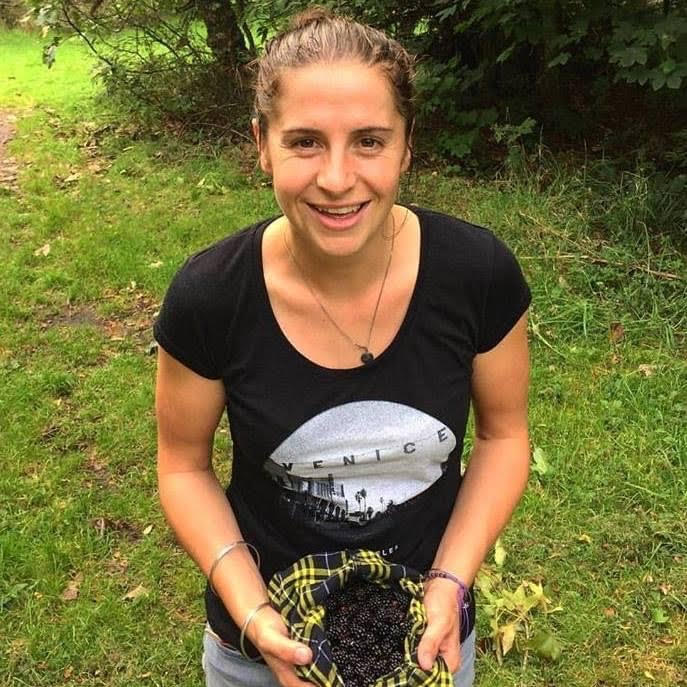|
Not only can nutrition and hydration make or break your race day, but we’ve actually heard that one of our Whaka100 athletes - Cati Pearson - knows a thing or two about how you can use it to get the best out of your performance. Not only is she a NZ registered dietician, she’s also been racing in the Whaka100 since 2014. So who better to guide us through this seemingly complicated topic! So, let’s get to it - we know a lot of people are a bit unsure of how to get the best from their nutrition and hydration. We sat down with Cati to get her advice both in the lead up to an event and on the day itself. A bit of background first. Cati Pearson, a Rotorua local has been riding her bike since she was 12. You might have seen her in her younger years as she “worked/loitered” at Planet Bike from the age of about 14 before progressing into high performance teams, even attending the World Championships for Triathlon. Of course, we know mountain bikes are where it's at and so did Cati: ”Once I returned to mountain bikes I never looked back”. This in fact, led to her winning her age group in the Whaka 25km in 2014 before building up through the event distances, even winning the amateur women’s 100km in 2020. With that, Cati returns this year battling with the Elite women!  Q - Do you have any hard and fast rules we should be following in the months leading up to the Whaka100? Like strength and endurance training, nutrition is a discipline you need to practice, it’s not just a ‘grin and hope thing’ you can start on race day. Get into a routine early of practicing eating on the bike, finding how you plan to carry your food and fluid, and what you can tolerate. Shorter training Be honest about training sessions intensity and length – short/easy trainings (less than an hour) don’t need any specific fueling during, or any fancy protein afterwards. We have plenty of energy stored in our muscles for small easy rides. Longer training For bigger, high intensity rides, try to eat at regular intervals throughout the training session. Don’t wait till the end to refuel. Give your body consistent energy by eating during training sets. Q - Should we be eating differently on days that we’re training and days we’re not training/recovery days? Not really, no. Your ‘base meals’ (Breakfast, lunch and dinner) should stay the same but you should plan pre- /post and during snacks to specifically fuel your training session (where appropriate). Q - What about hydration? Is that important too? Hydration is definitely important. We all need different volumes and a mix of water vs electrolytes depending on how sweaty we are! Try to weigh yourself before and after a training ride to work out how much water you lose. This can be a good indicator for how much you should drink on the bike. Plan your rides around drinking fountains and water stops to ensure you get enough fluid in. Dehydration has a huge role in recovery and can affect our appetite, making us eat more (especially carbs) after training. Q - What can happen if we don’t eat enough during our training? Under-fuelling can lead to overeating between training sessions, delayed recovery, poor performance and increased risk of injury. Some people like to under-eat during training to help “lean up” for races however this often leads to the opposite effect! Q - Race day - we’ve made it this far - what are your top tips for nutrition? Are there certain types of food you do or don’t eat? Your main nutrition focus during endurance events is carbs! That’s what fuels your brain & muscle so what we want to replace at regular intervals, set a watch reminder or km reminder to let you know when to eat – you can’t rely on hunger cues during exercise. Choose carbs based snacks like; muesli bars, sandwiches, boiled potatoes, lollies or any specific sports foods like gels and bars! Make sure you take more than you plan to eat – have options and extras in case you are out longer than expected Q - What about race day hydration? f you find it hard to eat on the bike you can use a carb based electrolyte to get in your extra energy. Make sure you drink – if the weather’s not so good, it’s easy for people to forget to drink but dehydration increases the risk of cramping – and you don’t want that. If you don’t like water, it's fine to get all your hydration from electrolytes, so find one that you like (whether carb based or not) and drink that! Q - Do we need to fuel differently if we’re doing a longer event - such as the 100km or Miler? Presumably a pocket full of jet planes won’t suffice? For any event over about an hour, your nutrition should be the same – just bigger amounts. If you are planning to be out over a meal time (e.g. lunch) you may want to choose a bigger snack to have over that period – things like a sandwich, hot X bun, creamed rice etc. If you are just eating lollies or gels, you are more likely to get taste fatigue and stop eating so variety is key! Q - Is there anything else you want to add about the event, riding, final words of wisdom? Practice makes perfect – when it comes to nutrition and racing! Never have anything new on race day, it's not fun having to duck into the bushes for an emergency loo stop at 75km! Be careful with use of things like pre-workouts (Editor - pre-workout is similar to coffee but is a supplement normally only used in sports) and caffeine – these are risky for gut upset especially in endurance exercise, where blood flow to your digestive system is reduced. If you’re reading this and have any further nutrition or hydration questions for Cati, you can contact [email protected] for more information.
Thanks again for taking the time to answer our questions Cati - we’re looking forward to seeing you at the Whaka! |
PRESENTING PARTNER
MAJOR PARTNERS
RACE TITLE PARTNERS
OFFICIAL PARTNERS
OFFICIAL SUPPLIERS
ORGANISATION PARTNERS
|
STAY IN THE LOOP
Get Whaka100 updates, news and more. |
Copyright © 2022 Whaka100. All rights reserved. Whaka100® word mark and logos are registered trademarks owned by Nduro Events.
|



